- Nutrition & Your Child's Teeth
- Brushing & Flossing
- About Fluoride
- Check-ups & Digital Radiographs (X-rays)
- Sealants
- Athletic Mouthguards
Nutrition & Your Child's Teeth
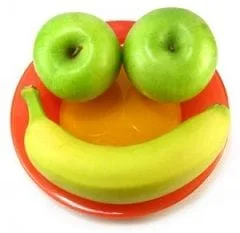
Though many children's snacks contribute to cavities, more often it is how a child behaves with food that is the problem. When kids sip and snack constantly throughout the day, the bacteria in the mouth are able to create wave after wave of decay-causing acid. When combined with the fact that baby teeth have thin enamel, it's easy to see how decay can progress quickly. Now, it's not childhood without getting to eat fun stuff - just be mindful of what should be considered a "sometimes food" and try to stick to the following recommendations:
- Keep juice and other sweetened beverages to a minimum and drink water in between meals
- Avoid fruit snacks and gummies that get caught in the deep grooves of back teeth and remain in the mouth for extended periods of time
- Limit the frequency of snacks high in fermentable carbohydrates (goldfish, chips, crackers, etc.)
- Try the "Rule of 6" - 3 meals a day + 3 snacks max
- Fresh fruit and vegetables (especially apples) + cheese = awesome.
Brushing & Flossing
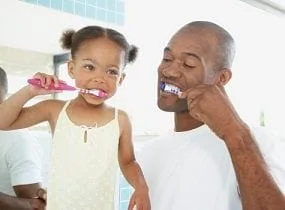
Brushing is the most effective way of removing harmful plaque from your teeth and gums. Doing this twice daily prevents the bacteria in your mouth from turning the food you eat into decay-causing acids on your teeth. Kids definitely need help brushing when they're young so use the softest toothbrush available and an age-appropriate dose of fluoride toothpaste.
Some kids have spaces between all of their teeth but most kids have at least a few tight contacts that need to be flossed. Remember, the areas where teeth touch are potential food and bacteria traps that can't be cleaned with a toothbrush. This, unfortunately, causes a lot of decay in children who get an A+ in brushing.
Dr. David and the team will show you some helpful strategies and techniques to get the most out of your home hygiene routine!
About Fluoride
For decades, fluoride has been held in high regard as an important mineral that is absorbed into and strengthens tooth enamel, a process called "remineralization" that repairs damage caused by decay.
Fluoride is a compound of the element fluorine, which can be found throughout nature in water, soil, air, and food. In nearly every U.S. community, public drinking supplies are supplemented with sodium fluoride because the practice is acknowledged to be safe and effective in fighting cavities.
Click here for our recommendations on safe fluoride use.
Check-Ups & Digital Radiographs (X-rays)
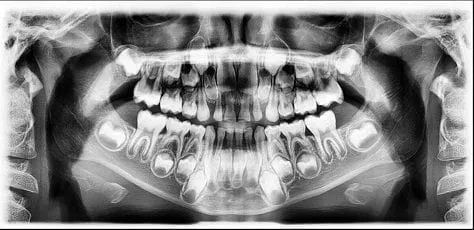
Visiting the dentist early (by age one) and often (every 6 months) ensures that we're able to identify problems while they are small and easy to fix. Decay has a distinct pattern that can progress quickly in a child's mouth due to their different behaviors, tooth structure, and arrangement of their teeth. It's often very difficult for parents to get a good look and identify issues before extensive treatment may be required.
Digital radiographs (X-rays) are an essential part of your child's diagnostic process. Without them, certain dental conditions can and will be missed. In addition to detecting small cavities that are invisible during the clinical exam, radiographs allow for the survey of erupting teeth, diagnosis of bone diseases, evaluation of injuries, and development of orthodontic treatment plans. When problems are found and treated early, dental care is more comfortable for your child and less costly.
Pediatric dentists are particularly careful to minimize the exposure of their patients to radiation. With the use of modern digital sensors, the amount of radiation used in dental x-rays is extremely small with negligible risk. Today's equipment also filters out unnecessary x-rays and restricts the beam to a very focused area of interest. This, combined with the use of lead body aprons, will ensure that your child receives the absolute minimum amount of radiation exposure.
Sealants
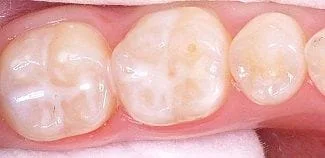

A sealant is a protective coating that is applied to the chewing surfaces of the back teeth, usually the two sets of adult molars kids get around ages six and twelve. This "seals" the deep grooves where toothbrush bristles can't reach and bacteria hide causing decay.
Athletic Mouthguards
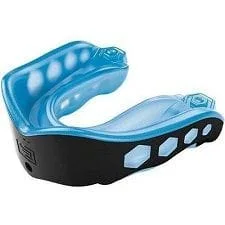
Anyone who participates in a a sport that carries a risk of injury should wear a mouthguard according to the American Dental Association. We usually think of football and hockey as being the most dangerous to the teeth, but nearly half of sports-related mouth injuries occur in basketball and baseball.
Mouthguards help prevent broken teeth and injuries to the lips, tongue, or jaw. A properly fitted mouthguard will stay in place while your child is wearing it, making it easy for them to talk and breate. Although mouthguards typically only cover the upper teeth, our office or an orthodontist may suggest you also protect your lower teeth if these have braces on them too. If your child has a retainer or other removable appliance, do not allow them to wear it during any contact sports.
There are three types of mouthguards:
- Stock - inexpensive and come pre-formed, ready to wear. Unfortunately, they often don't fit well, cause difficulty breathing and talking, and offer the least protection from injury.
- Boil and Bite - can be purchased at many sporting goods stores. They offer a better fit, and subsequently better protection, than stock mouthguards. They are softened in hot water and then inserted to adapt to the shape of your mouth.
- Custom-fitted - Made by our office for your personally. Though more expensive, their custom fit offers better protection than anything bought off the shelf.
To care for your mouthguard, wash it in soap and warm water and keep it in a well-ventilated plastic storage box when not in use. Heat is bad for mouthguards so don't leave them in direct sunlight or in your car.
